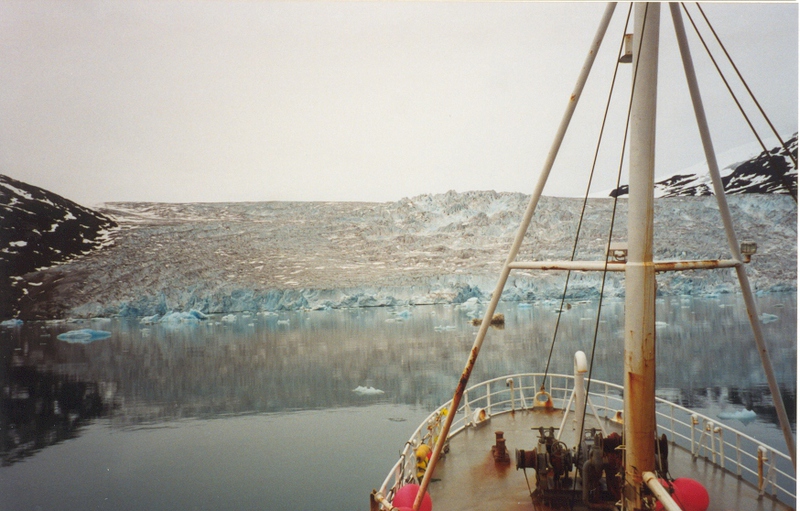CLIMA - “Changes in fish distribution and species composition as a re...

CLIMA - “Changes in fish distribution and species composition as a result of climatic changes in the East Greenland Ecosystem: implications for fisheries and management”
Project collaboration between: Møreforsking AS (Project owner and leader), Greenland Institute of Natural Resources, Nuuk
Institute of Marine Research, Tromsø, Thünen Institute of Sea Fisheries, Hamburg, Marine Research Institute, Reykjavik (observer)
Summary
As a region with adjoining cold and warm water masses, the East Greenland Ecosystem (EGrE) is one of the first to be affected by climatic changes. Several countries have been fishing in the EGrE for decades (e.g. Germany, Greenland, and Norway), primarily for Greenland halibut, cod and redfish. In recent years, new fisheries have been developed following shifts in fish species distribution, and including new and previously unexploited species entering the ecosystem. Predicted large scale hydrodynamic changes induced by changes in climate are expected to affect both vertical and horizontal distribution of fish and marine organisms. Information on the potential impacts of climate change on deep water fisheries is generally lacking, with additional effects of fishing being even more illusive.
CLIMA will utilise a wide collection of survey data brought into the project by the partners, providing an outstanding basis for conducting focused studies on target species and their response to variability of climatic change parameters over time. Furthermore, the project will collect new data from ongoing surveys. Studies on potential changes in trophic relationships will give valuable information also on species at lower levels of the systems food web. In order to make predictions on future food web components and dynamics, long-term analyses will include current as well as historical trophic data and long-term variability in fish abundance to be correlated with relevant climate parameters. This type of meta-data analysis has the potential to improve the baseline for future sustainable management, whilst addressing future challenges of migrating fish stocks (mobile fish stock management). Establishment of such a baseline will contribute to transparent and robust management to support fisheries, processing industries and export/marketing forces.


